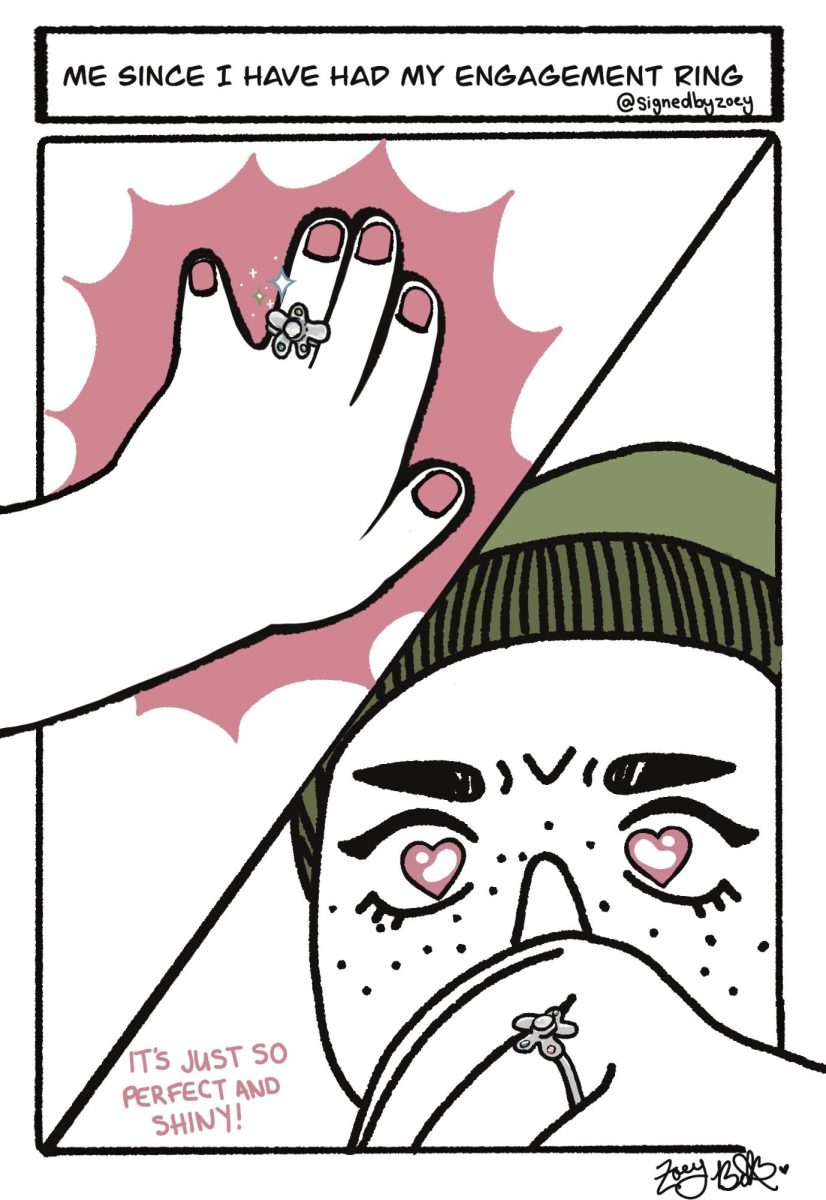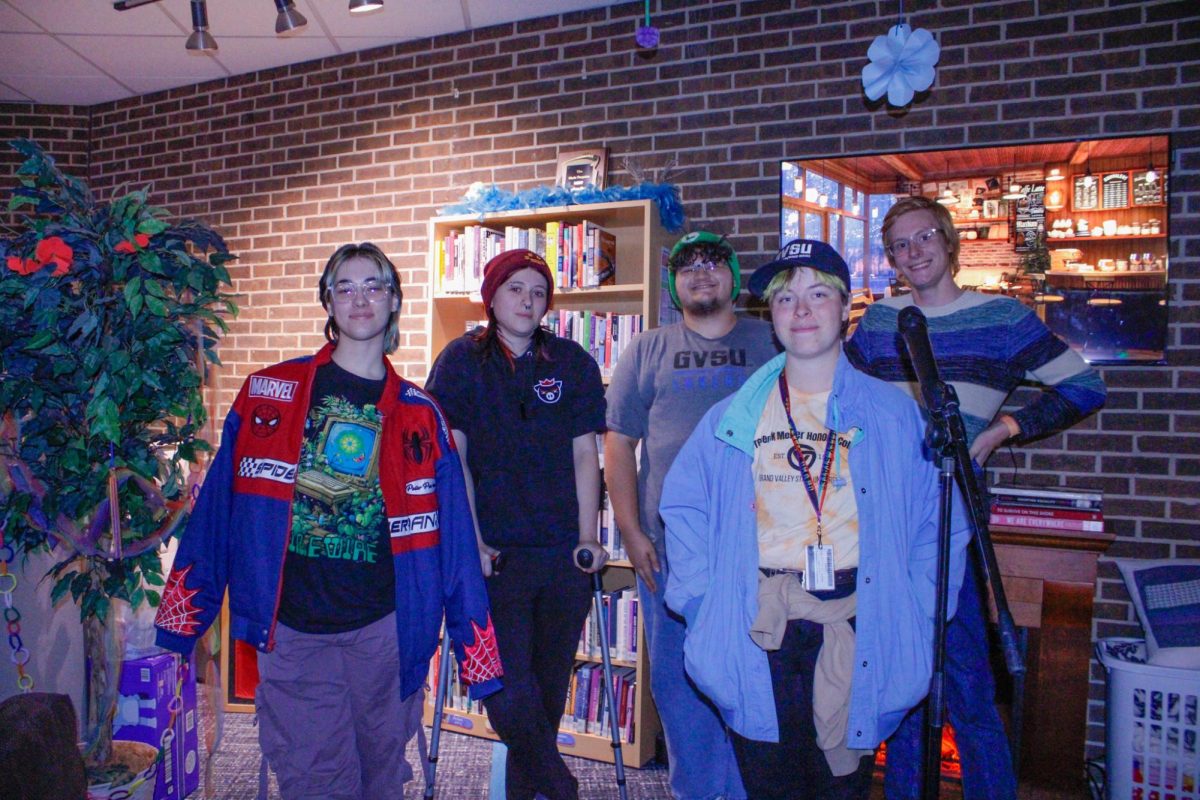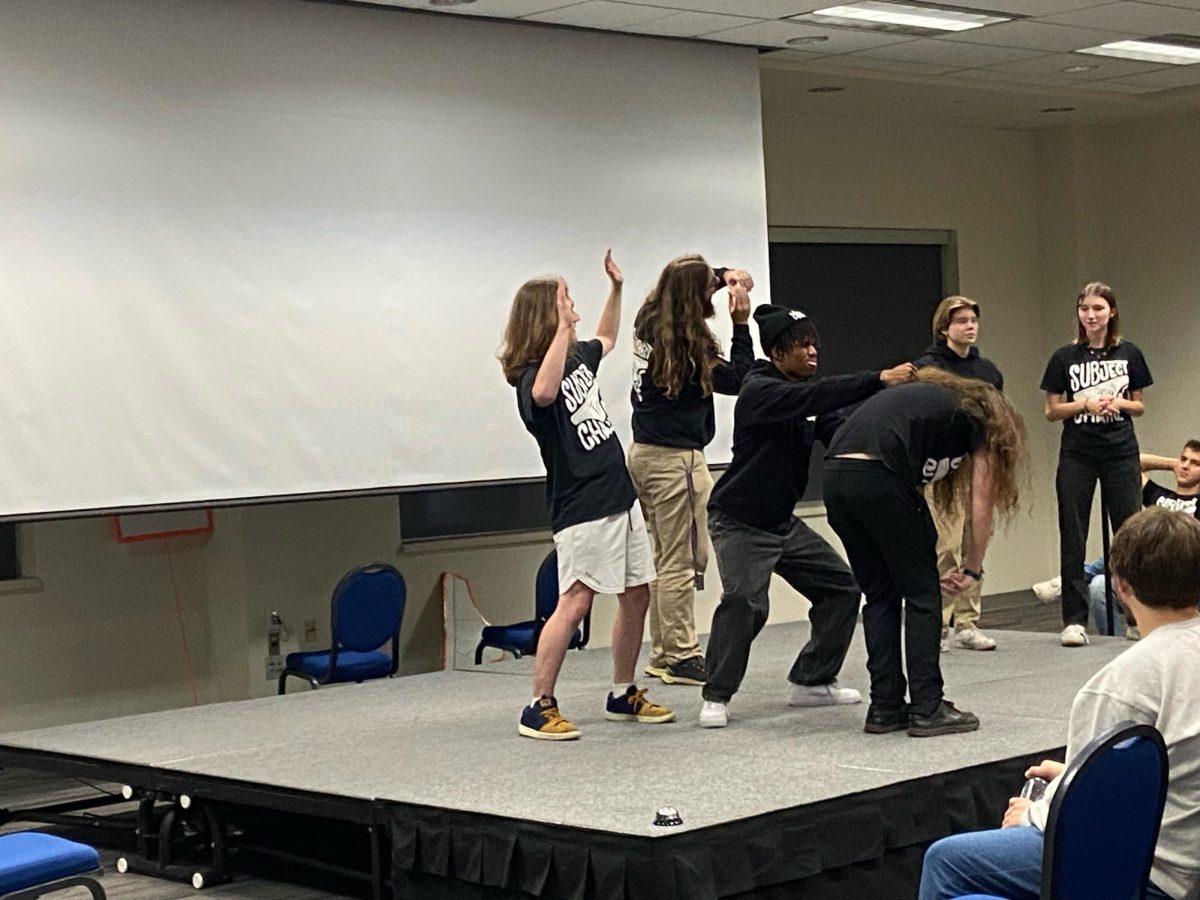Losing the battle with screens
Sep 7, 2014
It is a bit of a stirring awakening to realize that the majority of our time is spent in front of flashing keyboards and twitter updates. The comfort of hiding behind a cell phone has allowed us to escape confrontations with reality. We’ve become utterly disengaged.
The strange part is that we enjoy freedom from thoughts. We avoid any possible interaction because we are so focused on this thing that was originally intended to improve us. We’ve created a monstrous hindrance. Slowly, creation became revolved around making things essentially brainless. It’s all about the fastest and easiest method. As technology has matured, our cognitive abilities have regressed which in turn has diminished society.
Senior citizens, perhaps your grandmother or that ancient regular in a restaurant, reminisce about the yesterdays and point fingers at younger generations, ranting about how ruined and doomed we are. They constantly scorn at how we spend hours having staring contests with a screen. The nostalgia of playing outside early morning to when the streetlights glow absorb the conversation. Children’s lives no longer revolve around playtime. It’s unfortunate to consume. Yet it is true. Young folks have come to depend on the pleasure of distraction. We’ve fallen into the tempting trap of fulfilling our capacities for gratification in the quickest way possible.
The invention of Google, for example, has provided a way for us to become reliant on a search engine to answer out questions instead of consulting within. In the article “Is Google Making us Stupid?” the author discusses the harmful impact of having so much knowledge at our fingertips instantly. We truly have been ‘reduced’ by ‘irrelevancy.’ In 0.00097 seconds, Google boasts of the 512,000,000 results that have appeared. Consider the time needed for one person to acquire all of that information but we just skip over it, collecting bits and pieces, taking advantage of the shortcut. There is no argument that Google is effective – in fact I use it daily – but we are losing our capability to determine a solution independently. It has become a reflex to use other mechanisms as opposed to our brains. Paraplegics’ legs become frail from atrophy, similar to how our brains weaken when neglected. It’s not that our generation is less competent as many claim, we just use our brains less – which possibly sounds even more horrifying.
We need to focus more on building relationships with each other as opposed to relying on the isolation of machinery. We don’t need to persist in endless production of technology. By investing time in learning about human nature, we can develop ways to best utilize the billions of helping hands. Teamwork may be the best avenue in comprehending our world. We need to participate. That means we must actively be involved. As citizens, it is our responsibility to inform ourselves and then propose solutions. This allows us to progress. But the exposure to mindless entertainment has limited our ability to maintain an intellectual discussion. Intelligent communication is what sets humans apart from animals. Forgetting how to socialize could lead to internal destruction.
Headline: Losing the battle with screens (tentative)






















